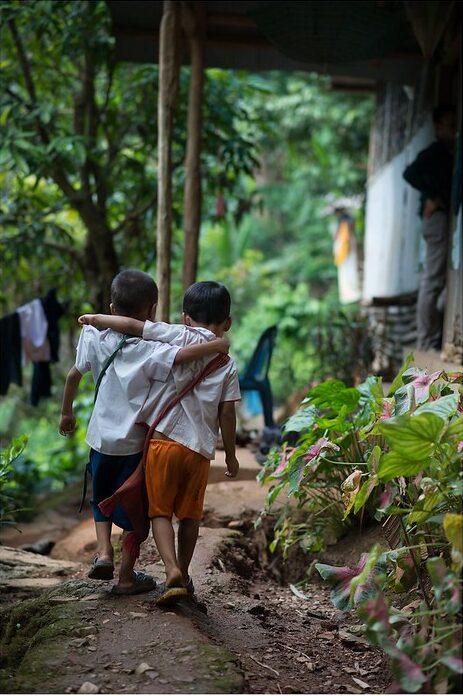Beyond the Convention: Refugee Realities

May 5, 2025
The 1951 Refugee Convention and the 1967 Protocol define who qualifies as a refugee and the protections they are entitled to. While 149 countries have signed at least one of these agreements, many countries, including Thailand, Myanmar, and Lebanon, have not. In these regions, refugees are often left in limbo due to the lack of legal frameworks for protection.
In Thailand, for example, many refugees fleeing conflict in Myanmar are treated as undocumented migrants. Without legal status, refugees are often confined to camps, denied the right to work, and face the risk of arrest or deportation. In Lebanon, Syrian refugees similarly struggle to access basic services, employment, and residency. As a result, many refugees in non-signatory countries live without the protections granted by the Refugee Convention.
In these countries, refugees are left vulnerable to detention, deportation, or exploitation. Access to basic rights like healthcare, education, or employment is limited, and social discrimination makes integration difficult. Refugees may have no legal way to seek protection without a formal system.
However, there are still some protections available. The principle of non-refoulement — prohibiting the return of refugees to places where they face danger — still applies, even in non-signatory states. This principle was derived from the convention, and it is now customary international law. Therefore, it does not give countries the right to reject it. Even though this principle still applies, refugees remain at the mercy of political shifts and public opinion in these regions.
At Refugee Empowerment International (REI), we are committed to supporting refugees wherever the need exists. On the Thai-Myanmar border, we fund refugee-led initiatives like the Addiction Prevention Program and the Maternal Health Awareness Project. In Lebanon, we support educational programs for Syrian children, empowering communities through access to learning and safe spaces. Refugees should not be forgotten simply because of where they are. Every person displaced by conflict or persecution deserves safety, dignity, and the chance to rebuild.
Alec Stamm, intern 2025